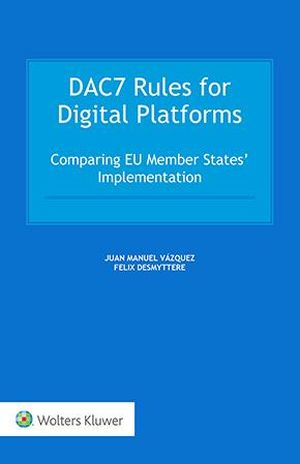
DAC7 Rules for Digital Platforms: Comparing EU Member States’ Implementation is a book that provides a comprehensive and systematic assessment of how DAC7 rules for digital platforms have been implemented by Member States in their national laws. It examines whether common or divergent approaches and interpretations of specific provisions of these rules have emerged among Member States. Council Directive 2021/514 of the European Union (DAC7) introduces, among other measures, a standardized tax reporting requirement for digital platform operators. Under this requirement, platform operators must collect, validate, keep records, and report to the tax authorities of Member States specific personal and transactional data concerning their sellers. The reported information is then automatically exchanged between tax authorities.
Why is this book relevant:
A systematic exploration and comparative analysis of the implementation of DAC7 rules is essential for the following reasons:
What’s in this book:
The issues mentioned above are covered in depth by experts who contribute national reports from 19 EU Member States, combining legal analysis with practical implementation insights. Two introductory chapters provide an overview of DAC7 rules at the EU level and provide a comparative analysis of key differences and similarities in implementation across EU Member States. Visual tools simplify the complex application of DAC7 definitions in practice and facilitate cross-jurisdictional comparison of the Directive’s implementation.
How this will help you:
The book will be invaluable to a wide range of stakeholders impacted by DAC7. In particular, it will assist businesses operating digital platform (including non-EU-based) in assessing DAC7 related risks and compliance obligations across the EU, legislators and tax authorities of EU Member States in identifying areas that require further harmonization or clarification, tax lawyers and professionals in managing legal challenges related to DAC7, businesses and individuals selling via digital platforms who may be affected by DAC7 reporting requirements, and academics and researchers interested in tax transparency frameworks and the interaction between tax law, EU law, and platform regulation.